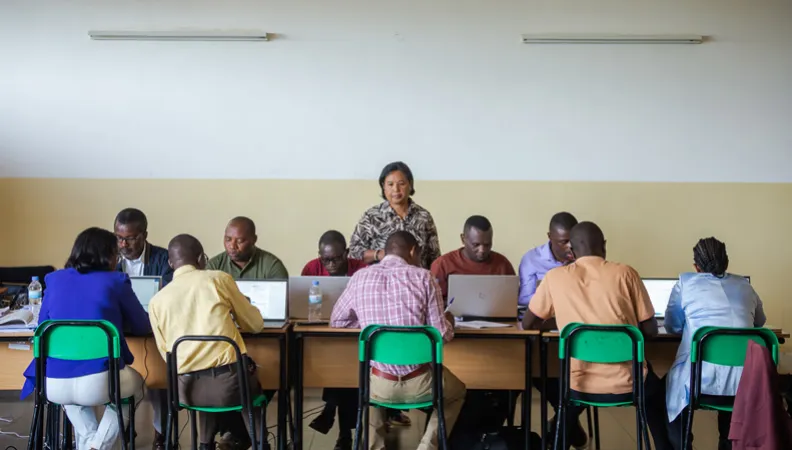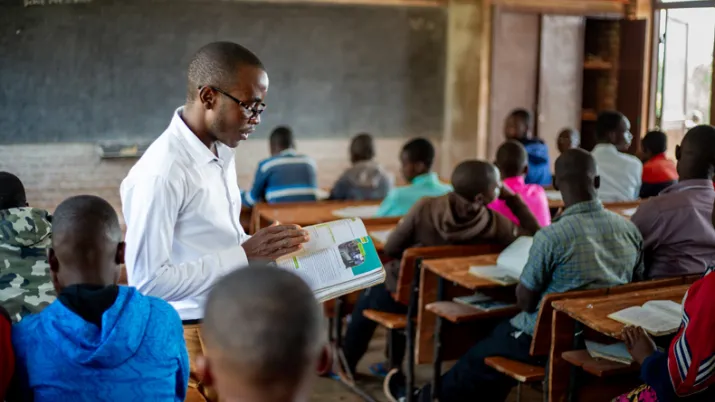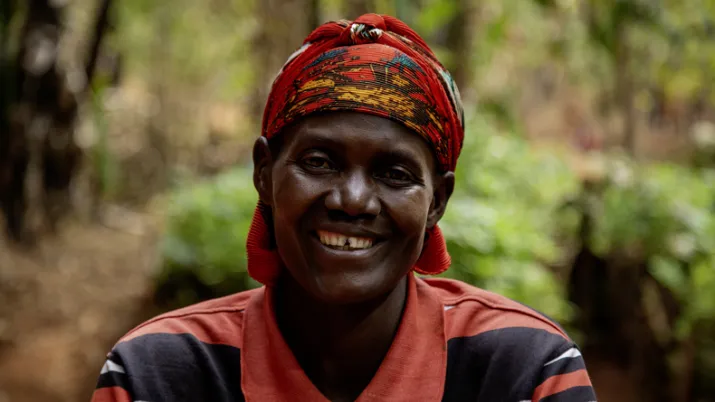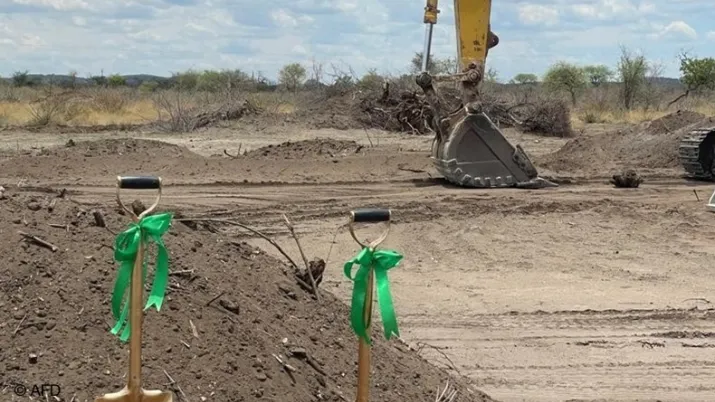Share the page
National Plan for the Teaching and Learning of French (NPTLFR)
Project


-
Project start date
-
Status
Ongoing
-
Project end date
-
-
Project duration
-
6 years
-
AFD financing amount
-
€ 6,000,000
-
Country and region
-
Location
-
Rwanda
-
Type of financing
-
Beneficiaries
-
Government of Rwanda
-
Type of beneficiary
-
State
This project supports the implementation of Rwanda’s national plan to strengthen French language education, aiming to improve the quality of teaching, increase attractivity, and boost youth employability.
Context
Recognized by the 2003 Constitution, French is one of Rwanda’s four official languages. It was the language of instruction until 2008, when it was replaced by English following Rwanda’s entry into the East African Community.
Reintroduced in 2016 as a mandatory subject, French is now taught at all levels of education. The reintroduction of French faced challenges, such as the need for adapted teaching methods and its exclusion from national exams, which hindered students' proficiency. The National Plan for the Teaching and Learning of French (NPTLFR) was adopted in 2022 to improve the teaching of French as a Foreign Language (FFL) through teacher training, adapted methodologies, better resources, and stronger links to employability.
Description
In response to Rwanda’s growing engagement with the Francophone world and its regional integration objectives, this ambitious plan reflects the government’s multilingual vision and contributes to the priorities of Rwanda’s Education Sector Strategic Plan.
The Plan aims to equip young Rwandans with practical French skills for academic and professional use. It focuses on teacher training, improving teachers' language proficiency, enhanced access to quality resources, and aligning French learning with employability.
Impacts
The Plan targets all levels of the education system. It acts as a strategic level.
Strategic axes include:
-
Enhancing teaching quality: Over 2,000 teachers and inspectors will be trained in French as a Foreign Language (FFL) pedagogy, with additional support to improve their own language proficiency. The project also supports the introduction of a national examination in French.
-
Increasing the attractiveness of French: 60 pilot schools — reaching approximately 10,000 students — will adopt modern, learner-centered methodologies. Cultural activities and the provision of pedagogical materials will help enhance the visibility and appeal of French.
-
Boosting youth employability: French will be positioned as a key skill for accessing academic and professional opportunities. The project will focus primarily on the College of Education and programs of translation and interpreting, while also extending to the health sector and TVET programs in tourism, hospitality, and catering. Higher education curricula in these areas will be updated to align with FFL standards.










